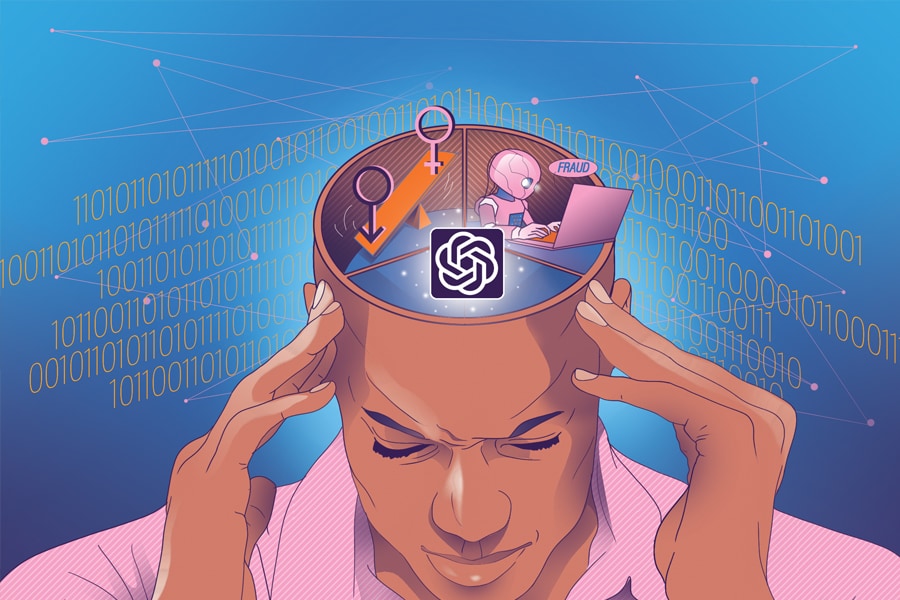
The fear from AI is not new: Ajai Chowdhry
The chairman of Epic Foundation and founder of HCL believes the sheer power of the technology calls for caution. And while artificial intelligence itself is fundamentally neutral, a regulator for it is a step in the right direction
 Illustration by Chaitanya Surpur
Illustration by Chaitanya Surpur
Artificial intelligence (AI) has been around since the late 1950s when it first excited a generation of scholars, mathematicians and scientists, although it wasn’t until the late 1980s when it started attracting serious funding. Today, it is everywhere, offering breakthroughs and powering innovation in almost every field. The latest buzz is towards ChatGPT, which is an AI chatbot that uses natural language processing to create human-like conversational dialogue, and compose written content, including articles, essays, code and emails.
ChatGPT was launched in November 2022 and in March, GPT-4 was released. Buoyed by its success and popularity, Sam Altman, chief executive of OpenAI, the startup responsible for the ChatGPT chatbot, says AI will be “the greatest force for economic empowerment” and a lot of people will be getting rich. Certainly. Nvidia, a maker of chips that run AI systems, recently became one of the most valuable public US companies with demand for those chips skyrocketing.
However, Altman has signed an open letter released by the Center for AI Safety, a non-profit organisation, saying that mitigating the risk of “extinction from AI” should be a global priority, given that we face threats of pandemics and nuclear wars. Other signatories to the letter included Altman’s colleagues from OpenAI and computer scientists from Microsoft and Google.
In my book Just Aspire that I launched even before ChatGPT was unveiled, I mentioned that the sheer power of AI technology calls for caution. Personally, I think that while the AI technology itself is fundamentally neutral, a regulator for AI is a step in the right direction. On June 14, the European Parliament voted to approve its own draft proposal for the AI Act, with the aim of shaping global standards in the regulation of AI.
Also read: ChatGPT vs. Hybrids: The future depends on our choices







